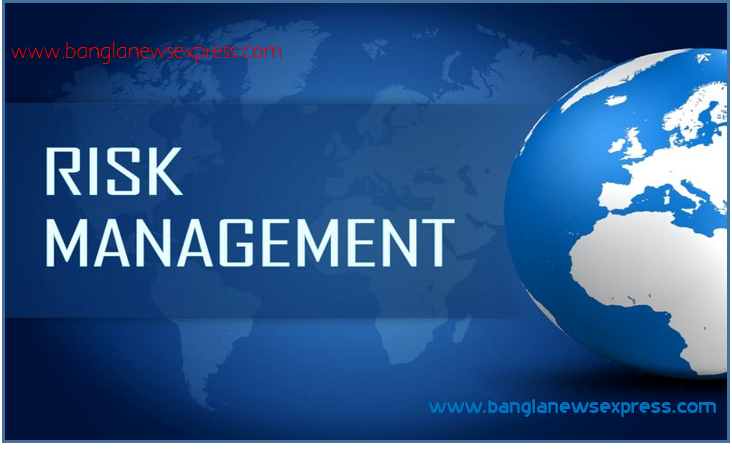How to Help Insurance Risk Management and Loss Prevention
How to Help Insurance Risk Management and Loss Prevention Risk management is the process of identifying, assessing, and controlling risks. It is a systematic approach to reducing the probability and impact of negative events. Loss prevention is a subset of risk management that focuses on preventing losses from occurring in the first place.
Risk management is important for all organizations, regardless of size or industry.
Risk management solutions for insurers
Mandatory Risk Assessment:
Insurance Helps Risk Management and Loss Prevention by requiring individuals and businesses to conduct risk assessments regularly. This promotes a proactive approach to identifying potential risks and taking preventive measures.
Discounted Premiums for Risk Mitigation:
Insurance Helps Risk Management and Loss Prevention by providing reduced insurance premiums for policyholders who implement risk mitigation measures. This incentivizes individuals and businesses to invest in safety and loss prevention.
Education and Training Programs:
Insurance Helps Risk Management and Loss Prevention by offering educational programs and resources on risk management and loss prevention. These initiatives ensure that policyholders have access to knowledge and tools to protect against potential risks.
Loss prevention tips for insurance professionals,Insurance policies for risk reduction
Safety Audits and Inspections:
Insurance Helps Risk Management and Loss Prevention by encouraging safety audits and inspections. Insurers can collaborate with policyholders to identify safety gaps and implement improvements to reduce risks.
Disaster Preparedness Plans:
Insurance Helps Risk Management and Loss Prevention by requiring the development of disaster preparedness plans. This ensures that individuals and businesses are well-equipped to respond to emergencies, reducing potential losses.
Advanced Security Measures:
Insurance Helps Risk Management and Loss Prevention by promoting advanced security measures such as surveillance systems, alarm systems, and access control for businesses and homeowners.
Liability Coverage for Safety Practices:
Insurance Helps Risk Management and Loss Prevention by providing liability coverage for individuals and businesses that implement safety practices. This minimizes financial burdens associated with accidents or injuries.
Preventing losses through insurance practices
Risk Assessment Technology:
Insurance Helps Risk Management and Loss Prevention by encouraging the use of risk assessment technology. This includes the integration of IoT devices and data analytics to monitor and manage risks in real-time.
Customized Risk Management Plans:
Insurance Helps Risk Management and Loss Prevention by facilitating the creation of customized risk management plans for businesses. Insurers can work closely with organizations to develop strategies that address their specific risks.
Climate Resilience:
Insurance Helps Risk Management and Loss Prevention by addressing climate-related risks. Insurers should provide coverage and guidance to help individuals and businesses prepare for the effects of climate change, such as flooding and extreme weather events.
Cybersecurity Measures:
Insurance Helps Risk Management and Loss Prevention by promoting cybersecurity measures for individuals and businesses. Policies can include incentives for robust data protection and cybersecurity practices.
Effective risk management in the insurance industry, Insurance risk mitigation techniques
Occupational Health and Safety Compliance:
Insurance Helps Risk Management and Loss Prevention by ensuring businesses comply with occupational health and safety regulations. This reduces workplace accidents and the associated insurance claims.
Supply Chain Risk Mitigation:
Insurance Helps Risk Management and Loss Prevention by offering coverage and support for supply chain risk mitigation. Businesses can protect against disruptions caused by events like natural disasters or geopolitical conflicts.
Employee Training and Wellness:
Insurance Helps Risk Management and Loss Prevention by encouraging employee training and wellness programs. Insurers can reward businesses that invest in the health and well-being of their workforce, reducing absenteeism and health-related costs.
Claims Prevention Strategies:
Insurance Helps Risk Management and Loss Prevention by collaborating with policyholders to develop claims prevention strategies. This involves identifying common causes of claims and implementing strategies to reduce their occurrence.
Implementing best practices for insurance risk prevention,Enhancing loss prevention programs in the insurance industry
Risk management and loss prevention are important for all organizations. By implementing effective risk management and loss prevention strategies, organizations can protect their assets, reduce their liabilities, improve their operational efficiency, maintain their reputation, and achieve their strategic goals.
insurance, guided by legislation like the hypothetical Insurance Act, can play a pivotal role in promoting risk management and loss prevention by incentivizing safety practices, offering educational resources, and supporting technological advancements that reduce risks and protect the well-being of individuals and businesses How to Help Insurance Risk Management and Loss Prevention
Finally: Insurance risk management software solutions,Collaborative efforts for effective insurance risk mitigation
Some more insurance and finance related posts for you
- home loan,গৃহ লোন, গৃহ নির্মাণ এবং ফ্ল্যাট ক্রয় ঋন সংক্রান্ত,শিক্ষক-কর্মচারীদের গৃহ ঋণ

- সহজ শর্ত ঋণ পেতে করণীয়, ব্যাংকঋণ পেতে যেসব নথি লাগে

- শিশুর শিক্ষা বীমা, শিশুর শিক্ষা বীমা সুবিধা ও অসুবিধা

- একটা কার্ড ভালো নাকি খারাপ?,ক্রেডিট কার্ড এর উদ্দেশ্য কি?,ক্রেডিট কার্ড ব্যবহারের তিনটি সুবিধা কি কি অসুবিধা?

- ক্রেডিট কার্ড ব্যবহারে সতর্কতা,ক্রেডিট কার্ড ব্যবহারে সতর্কতা অবলম্বন করতে হবে

- স্বাস্থ্য এবং সুরক্ষা বিষয়ক আর্থিক পলিসি, স্বাস্থ্য বীমা কি ও ব্যাখ্যা







